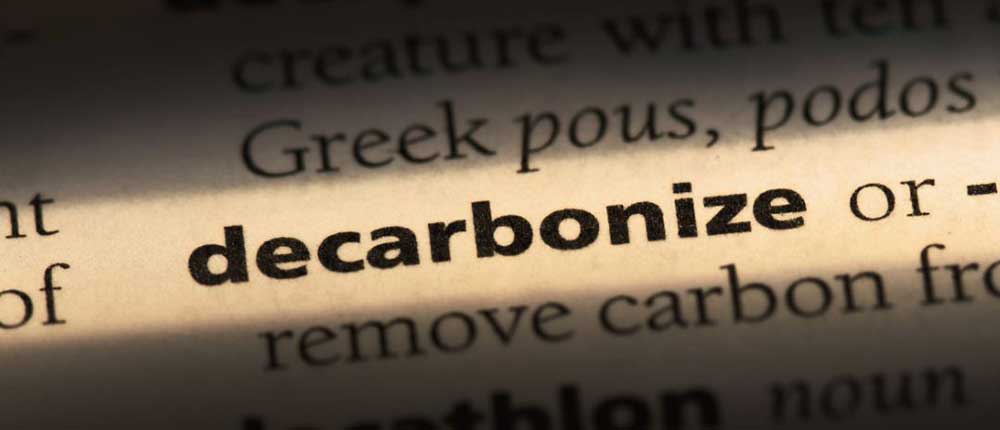Preparedness towards implementing Enhanced Transparency Framework and tracking NDCs under the Paris Agreement

The project aims to undertake research work to enhance preparedness for the adoption of Modalities, Procedures and Guidelines (MPGs) for the Enhanced Transparency Framework (Article 13 of the Paris Agreement). The activities will include research on new reporting requirements such as Common Reporting Tables (CRTs) for GHG inventories, Biennial Transparency Report (BTR), flexibility options and Common Tabular format (CTFs) for tracking progress in implementing and achieving NDCs.
Research on unpacking key elements of the MPGs of the ETF and its implications on developing countries
As per Article 13 of the Paris Agreement, Parties are required to submit first Biennial Transparency Report (BTR) from 2024 onwards. This is to be done using Common Reporting Tables (CRTs)" for National Inventory Reports, Common tabular formats (CTF) for information necessary to track progress on NDCs, formats for providing information on financial, technology and capacity building support provided and needed and outlines of the BTR. At the 50th meeting of Subsidiary Body for Scientific and Technological Advice and the Subsidiary Body (SBSTA 50), it was concluded that the existing guidelines such as tables for national communications used by non-Annex I countries for reporting GHG inventories offers a good starting point for reporting under CTF. Therefore, there is a need to understand various reporting formats to be developed and agreed upon by all the Parties. This activity will identify and unpack additional reporting requirements, guidelines and formats including CRTs and CTFs. Important activity here will be to identify areas where 'flexibility' is needed and can be provided for developing countries while implementing various elements of ETF.
Indicators for tracking progress on NDC
Decision adopted at COP24 mandates each Party to provide the information necessary to track progress in implementing and achieving its NDC under Article 4 of the Paris Agreement, in accordance with the MPGs of the ETF. This further requires parties to identify indicators to track progress towards the implementation and achievement of its NDC under Article 4. Indicators shall be either qualitative or quantitative. This activity will identify and develop key indicators for tracking progress on quantitative NDC targets and select mitigation policies and plans. Progress indicators are specific, measurable metrics that support systematic tracking of how policies are being implemented and whether they are on course to achieve their NDC targets and objectives. This approach also gives flexibility in the choice of measurement and progress indicators.
![]()
Participation in climate change negotiations and related meetings including Subsidiary Bodies meeting (SBSTA/SBI), Conference of Parties (COP), etc.)
In order to understand further developments around the MPGs of the Enhanced Transparency Framework, TERI research team will participate as an 'Observer' in the climate change negotiations including COP and SB meetings. The key output of this activity will be policy briefs/discussion papers to inform key stakeholders and policy makers.
An independent platform on Enhanced Transparency Framework
Despite the existence of various transparency-related initiative for practical exchange and policy dialogue between countries on enhanced climate transparency such as PATPA, CBIT, ICAT, etc., most developing countries (including India) are yet to build a robust sustainable institutional mechanism to regularly communicate, share, and review their efforts towards the adoption of MPGs and related reporting requirements. This activity will strive to develop an independent platform to bring together key stakeholders including line ministries, think-tanks, industry experts, amongst other to discuss and deliberate on key thematic issues, options and strategies in the context of ETF.
Publications
COVID-19 and climate discourse: Sustaining momentum

Originally published in the August 2020 issue of Energy Review newsletter, the article highlights that there is a tremendous opportunity for countries at this stage to steer economic recovery and stimulus packages to be more environmentally conscious. Investment in nature-based solutions and sustainable agriculture; loan and grants for green investments; reinforcing environmental regulation are some of the ways this can be achieved.
Climate Action: What's next for India?
Published in AIDMI's Southasiadisasters.net, the article illustrates that while India is committed to NDC till 2030, a long-term strategy is important to bring down emissions while pursuing sustainable growth and development.
Tracking current progress and future ambition of Asian Countries under the Paris Agreement: Possible Indicators for Reporting NDC Progress
The Modalities, Procedures and Guidelines (MPGs) adopted at COP24 (Katowice) established the norm for Biennial Transparency Reports (BTR) from 2024 including the progress on 'mitigation and adaptation targets as mentioned in the NDCs'. Thus, inculcating the various facets of the ETF which in turn also limits the erstwhile gap existing between Annex – I and Non-Annex I countries, has become indispensable. TERI has done an analysis on the NDCs of 45 Asian countries and 40 African countries party to the Paris Agreement, in order to understand their national contexts and nature of the NDCs. The party NDCs usually range from endorsing strategies that cater to renewable energy generation, energy efficiency, increase in their installed capacities, approaching carbon neutrality or increasing carbon sinks.
Discussion paper on National Inventory Management System (NIMS) in India
The paper discusses that a centralized National Inventory Management System (NIMS) in India is the need of the hour and its operational contours should be decided as expeditiously as possible. This is needed not only to compute India’s emissions from various sources and sinks comprehensively and correctly, but also fulfill India’s international obligations to track the progress in respect of mitigation related commitments such as economy-wide goal to reduce emissions intensity and the sectoral goals as envisaged under India’s NDC. An ideal National Inventory Management System will involve setting up a centralised data reporting and management system that can collect, store, manage and analyse emissions data from public and private sources, including industry and point sources.
Events
Demystifying COP26: Key takeaways and future roadmap for IndiaTERI organized a high-level panel discussion with the key members of the Indian delegation to COP26 on December 10, 2021 to share the key outcomes and shed light on the future roadmap to achieve the targets laid out by India.
On 22 April 2020, TERI organised a virtual meeting of experts and stakeholders to discuss the key findings of the National Inventory Management System (NIMS): Issues, needs and implementation framework discussion paper and receive inputs/feedback with an objective to support the implementation of a robust NIMS in India.
On January 29, 2020, TERI organised a thematic track on "Transparency and Accountability in Global Climate Governance: Needs, Challenges and Opportunities for India" at the World Sustainable Development Summit (WSDS) 2020.
Concept Note Agenda Proceedings
At COP25, TERI – in collaboration with PATPA, GIZ, Ricardo EE organized a high-level session on Thursday, 5th December 2019 from 8:45 – 10:00 CET, as part of UNFCCC's Second Capacity Building Hub. The session was titled as "Ready for the BTR? – implications of the Katowice rulebook for the developing countries: challenges and opportunities" and aimed at supporting developing countries in assessing their institutional readiness and establishing systems in line with the requirements of the Enhanced Transparency Framework (ETF) and exchange lessons learned and good practices.
